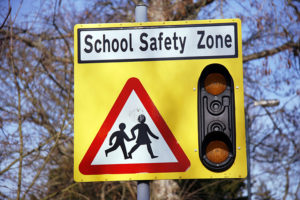Character education is of fundamental importance, however, it can be harder to agree on the time in a child's life when it can have the greatest impact.

Character education is of fundamental importance; however, it can be harder to agree on the time in a child’s life when it can have the greatest impact.
Arguments in education have gone back and forth on this question, and a recent meta-study presented at Oxford University has aimed to provide some clarity to the discussion, reports Religion News Service.
The Religion News Service reported that, “[C]ombining the results of 52 studies of character education, including over 225,000 students indicated that character education had the greatest impact on youth, when it took place in high school.”
The meta-study was conducted by William Jeynes, Professor of Education at California State University, Long Beach, and Senior Fellow with The Witherspoon Institute in Princeton (New Jersey).
Jeynes noted that, “The results are particularly intriguing, because the sparse number of character education school programs that there are, emphasize ‘getting them when they’re young.”
In some ways, the results of the meta-study do seem to defy conventional logic. We know that childrens’ minds are exceptionally malleable at a young age. Therefore, wouldn’t it make sense that this is the time to focus on the development of their character?
Jeynes responds to this point, “Although these results go against the tide of the current thought that character instruction should primarily take place when pupils are young, upon further examination, they really do make sense. Students begin the process of making some of the most important decisions of their lives when they are in high school. If there is ever a time in which they need moral guidance, this is the time period.”
The important decisions that Jeynes references can have reverberations throughout a student’s lifespan. As our young adults make critical choices regarding life, career, and community, they should be making these decisions with a firm sense of the ideals to which they will give themselves, and to which they will submit.
The Institute for Advanced Studies in Culture at the University of Virginia has also argued that adolescence is a period of fundamental importance. During this time, young people actively embrace a vision of “the good.”
As James Davison Hunter, the Institute’s Executive Director and founder, details in The Death of Character, “[C]haracter is shaped not by a cowering acquiescence to rules imposed externally but as a conscious, directed obedience to truths authoritatively received and affirmed.”
Hunter’s distinction between “rules imposed externally” and “truth’s authoritatively received” is useful to keep in mind when considering the potential causes of Jeynes’s findings.
It is realistic to expect that a young child is only capable of understanding character education as rules that they must obey. We know that rules can only govern human behavior to a certain extent; they are not binding on the soul in the same manner as character.
However, a high-school student is intellectually capable of grappling with the “Why”inherent in moral education. If they are able to ascertain the reason for submitting one’s self to timeless truths, they could be more likely to internally receive them, as Hunter describes.
High school teachers should not feel that they are without resources to form their students’ character. The Jubilee Center for Character and Virtues, for example, offers a unit on Joan of Arc that engages students in literary and historical study of inspiring heroes for teenagers.
The use of such lessons can begin to orient high school students towards ideals that will enrich their lives for years to come.



